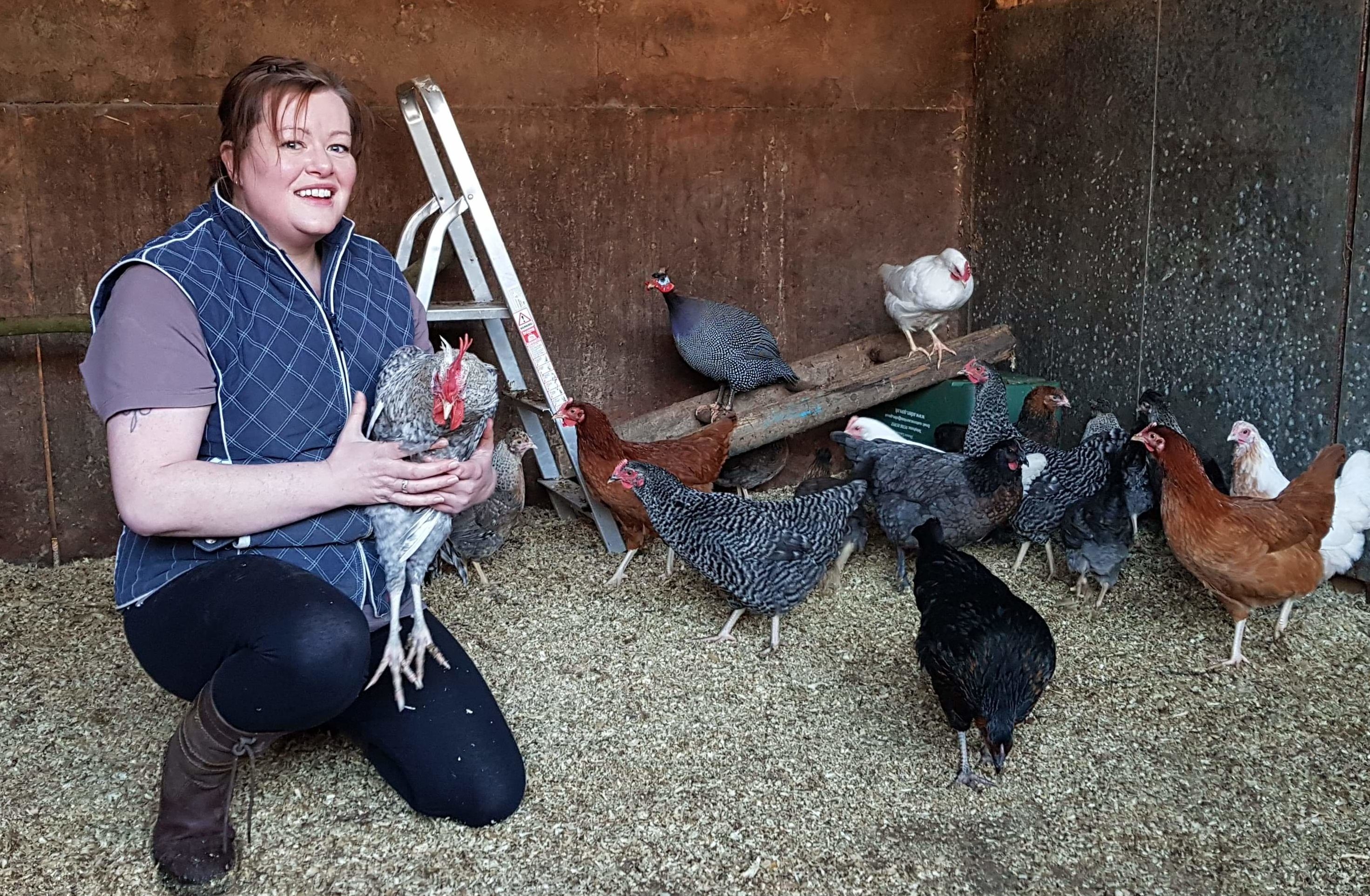
WHEN more than a dozen of chicken breeder Debbie Hewison’s prize birds were found dead near their coop, the obvious culprit was a fox.
But when unusual footprints were discovered at the scene of the grisly crime, a mystery soon unfolded.
“I was expecting to see fox or stoat prints in the mud around the area where the chicks had been killed,” said Graeme Mackay from GM Pest Control, who was called in to catch the predator.
“Instead, there were tracks I didn’t recognise, so I Googled them.”
To Graeme’s surprise, the prints belonged to an adult raccoon – which don’t exist in the wild in Scotland.
“I was really taken aback because the last time I had to catch a raccoon was 40 years ago, when one escaped from Edinburgh Zoo,” he said.
Debbie, 40, a cook, from Coulter, South Lanarkshire, is an animal lover and has been rearing and selling chickens for many years.
She keeps them at the nearby farm of her friends Tom and Sarah Parker who had caught the raccoon on CCTV cameras six weeks previously.
“There are cameras around the farm to help spot predators,” Debbie said. “I couldn’t believe it when a raccoon showed up but it disappeared and wasn’t seen again so we didn’t think any more about it.”
Debbie was distraught when she got a call from Sarah last Wednesday to say 14 of her chickens had been killed by an unknown animal.
“All my giant Brahma chicks were dead and only one called Bertie was left.
“I too thought it was a fox or a mink that was responsible.”
The next day pest expert Graeme was called in to set some traps.
And after a few false starts – including capturing the farm moggy and a few hedgehogs – the real culprit was finally snared on Friday using cat food as bait.
“I couldn’t believe it when we had caught a raccoon,” Debbie said. “I was very upset about what happened to the chickens but as soon as a I saw this wee thing my heart melted and I forgave it.”
The female raccoon was named Ronalda and quickly became a favourite with the Parker’s young children Ben, 2 and Amy, 5.
“Ronalda is pretty tame and was soon eating jam from my hand, so we suspect she is an abandoned pet,” Debbie said.
Raccoons have been identified as one of the top 50 invasive, non-native species most likely to be introduced and cause negative impacts in the UK.
Many people keep them as pets but it’s illegal to release a non-indigenous species into the wild.
Raccoons are native to North America, where they are considered a major nuisance. They were deliberately introduced to Germany in the 1930s to fill fur farms.
The Germans decided to release some of them, then a stray bomb during the Second World War hit a fur farm allowing some raccoons to make homes for themselves in the forests. Millions now roam around the continent.
Ronalda has been handed over to the Scottish SPCA, who will try to find her a new home.
Chief Superintendent Mike Flynn said: “The raccoon is now being cared for at our Lanarkshire Animal Rescue and Rehoming Centre.
“If we are unable to identify her owner we will find a specialist who will be able to provide expert care.”

Enjoy the convenience of having The Sunday Post delivered as a digital ePaper straight to your smartphone, tablet or computer.
Subscribe for only £5.49 a month and enjoy all the benefits of the printed paper as a digital replica.
Subscribe